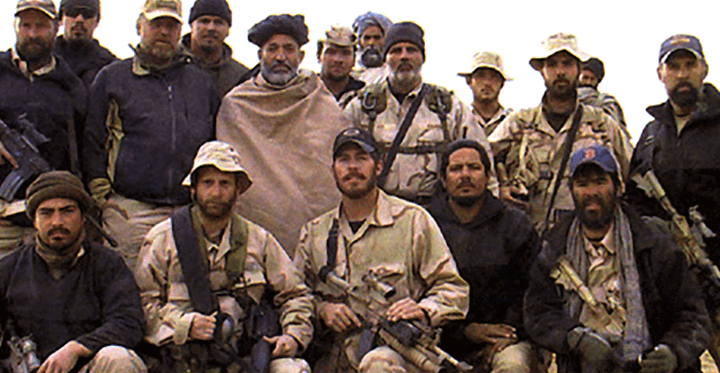The sound you heard Friday around lunchtime on the East Coast was BuzzFeed’s big “scoop” falling flat on its face. According to “two sources [leakers] familiar with the program,” BuzzFeed reported that “Trump’s CIA” is sending “small teams of commandos downrange to kill selected bad guys.” I take it as an encouraging sign that almost no one seemed surprised by the news, or even seemed to care much.
Some commenters tried to be pithy, saying things like “we used to call that assassination.” Except we didn’t, because a “targeted killing” of a terrorist is not the same as a political assassination.
CIA’s Special Activities Center
Assuming the story got its facts straight—and aside from the perfunctory denial from Langley, there’s really no reason to think the facts aren’t correct—the CIA’s Special Activity Center (formerly called the Special Activities Division) is sending “commandos…on missions to kill terrorists on the ground.”
Let’s hope they are.
The men undertaking these alleged missions would belong to the SAC’s “Ground Branch,” the paramilitary commandos who, along with their compatriots in the Air and Maritime Branches, carry out the CIA’s covert military activities. This is not new news. The CIA openly solicits applicants who want to be a “Paramilitary Operations Officer/Specialized Skills Officer.” Those selected are usually veterans of the various special operations units, especially from the Joint Special Operations Command. A person in a position to know once told me that some Ground Branch operators are actually “on loan,” from JSOC.
The point is, the CIA’s paramilitary capability is public information. They’ve been heavily used in Afghanistan, Iraq, Libya, and more recently in Syria. And what else would the CIA, the government agency empowered by law to engage in covert activities, do with a paramilitary capability? If you said “Kill really important bad guys,” congratulations.
Targeted killings aren’t “assassinations”
The charge that sending small commando teams to kill terrorists overseas is the same as assassination betrays a nearly total lack of understanding of both law and terminology.
According to Merriam-Webster, assassinate means “to murder (a usually prominent person) by sudden or secret attack often for political reasons.” Another online law dictionary defines it as “The targeted, covert killing of an individual without legal process and usually for reasons of, though not necessarily limited to, political or military expediency.”
The key words are “murder” and “without legal process.” Shooting a political leader when you’re not at war is an assassination. Killing a member of al Qaeda or ISIS, whether by drone or in-person, when they’re in an conflict zone is not an assassination. It is killing an enemy combatant in wartime.
The U.S. has been using armed drones to kill suspected terrorists since 2001, but President Barack Obama increased their use dramatically. In a 2010 address to the American Society of International Law, Harold Koh, a State Department legal adviser, laid out the administration’s position. At the most fundamental level, he argued, the U.S. is at war with al Qaeda, so killing al Qaeda members, even when they think they’re in a safe haven, is consistent with international law.
It stands to reason, then, that a small team of Ground Branch paramilitaries would also have the legal grounds to kill an al Qaeda member (or, these days, ISIS, which is, after all, an offshoot of al Qaeda) where they find them. To calm the civil libertarians, this authority would not, however, extend to the U.S. The CIA’s authority to conduct covert operations under Title 50 of the United States Code does not allow for domestic CIA covert activities.
Furthermore, there is far less chance of collateral damage in a commando raid than there is in launching a Hellfire missile from 50,000 feet in the air.
BuzzFeed thought it had a great story. In a way, it was a great story, it just wasn’t the blockbuster revelation the author thought he had. What he really had was confirmation that the CIA is doing what it’s supposed to be doing.
For that, we should thank him.




